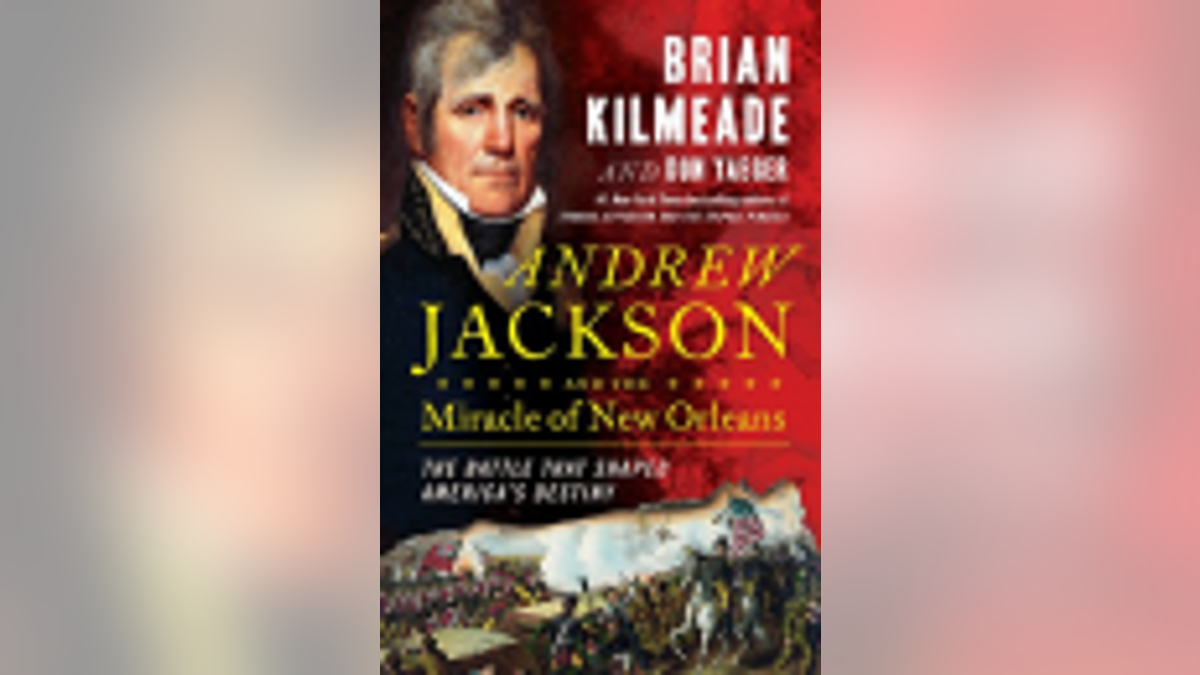
Over the course of five book tours, I’ve had the privilege of speaking to the most patriotic Americans on the planet. However, at the same time, I’ve noticed a generation emerging that doesn’t appreciate what America is about and how we became a great nation. Instead of celebrating the past, many people judge it by their own modern values and vilify its heroes.
I’ve pushed back against this kind of war on history before, and now, as I get ready for my sixth book tour, promoting the paperback edition of “Andrew Jackson and the Miracle of New Orleans,” I am looking forward to fighting it once again.
Andrew Jackson went from being a 13-year-old orphan fighting in the Revolutionary War to being the winner of a victory so unthinkable it’s still studied by military colleges today.
Despite being severely ill, he cobbled together a diverse army, uniting men of many creeds and colors, and turned them into a fighting machine that took down the greatest army in the world.
Thanks to him, it became safe for America to spread from sea to shining sea.
As I talked about these stories on the hardcover book tour, people often raised questions about the unsavory aspects of Jackson’s life.
Yes, he had slaves. Yes, he fought Native Americans, and, yes, it’s true that he had a role in the Trail of Tears.
I don’t want to hide these facts; Jackson was a complex and flawed man, and we should learn from his failures.
What we should never do, though, is let those flaws make us forget his victories, because if we do so we lose our history.
To push back against scholars and critics who see only the worst, I’ve written a new afterword for the paperback edition of the book that highlights what past U.S. presidents thought of Jackson. In it, we see the reasons FDR visited Jackson’s home seeking inspiration and focus before World War II.
We see why Teddy Roosevelt wrote a book on Jackson’s leadership, why Harry Truman idolized him, and why Ronald Reagan looked to him as a model.
We see why President Trump saw in Jackson an example of a man rejected by the Washington establishment who nonetheless tapped into the patriotism of ordinary Americans and won.
Jackson was not without flaws, and America, though it’s an example of freedom and democracy that has inspired millions around the world, has never been perfect.
We have the stain of slavery and the often heartless treatment of our native peoples on our record. But these sad facts should not overwhelm what we have become or distract us from what we owe the men and women who came before us.
We have to stop judging Americans of the past by the values of today. Like us, they were limited by the prevailing views of the day, and expected us to build on what they started, not accept it as enough.
I know that as I head out on tour again, my confidence in America’s future will increase. My optimism is largely due to the readers who come to my events, who love our country and who see themselves in the stories I tell. They know that the great American secret is that our nation was built by everyday Americans who did extraordinary things.
Here’s another secret: Many authors hate book tours, but, aside from missing my family and my kids’ games, I love them. My readers’ enthusiasm for honoring forgotten heroes and for making America great makes me love the speeches, signings, and events.
While America was never perfect, we try to be, which is what makes us great.
Check out www.briankilmeade.com so I can get a chance to meet you on the road and show my appreciation in person for your support.








































